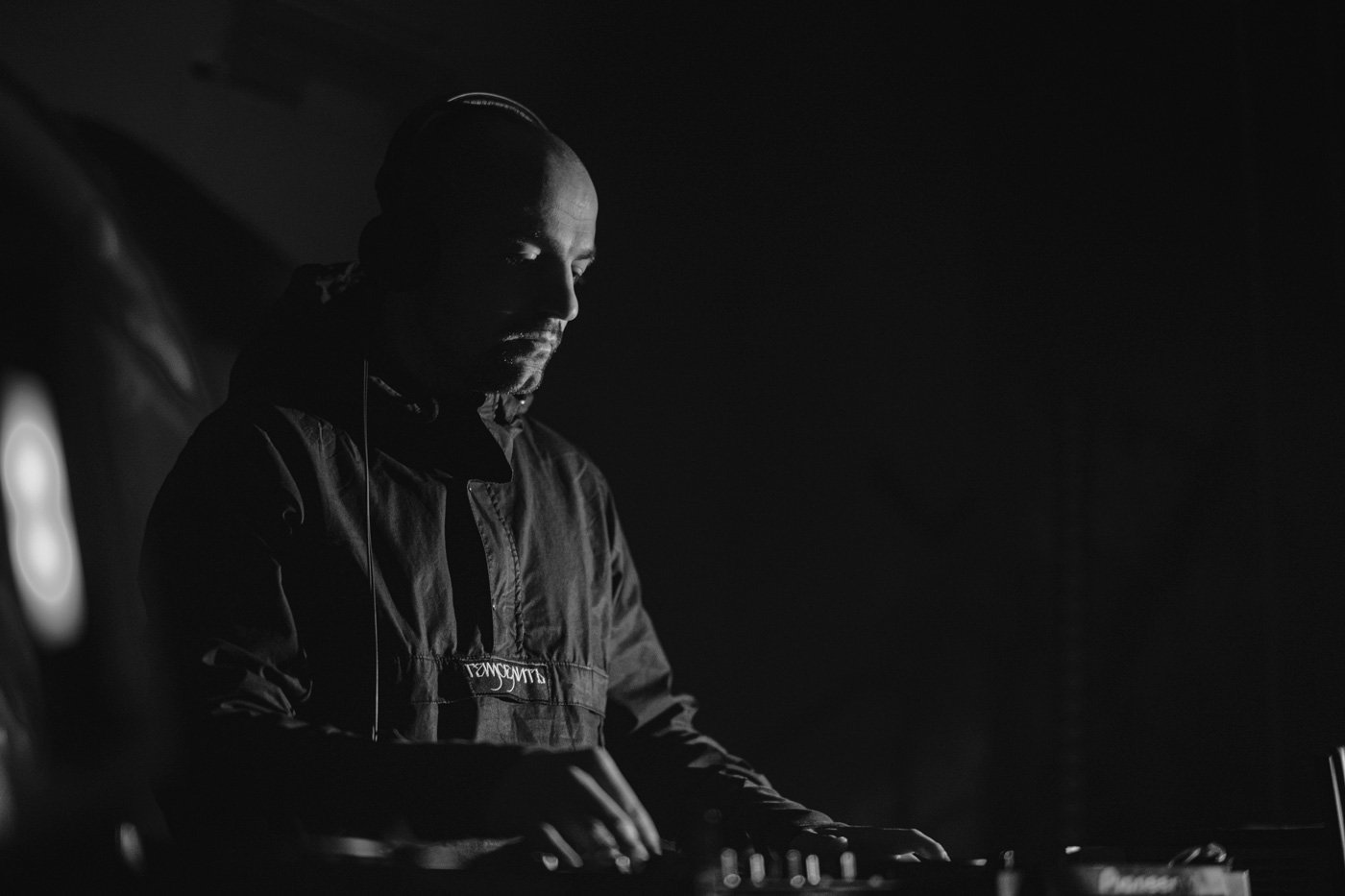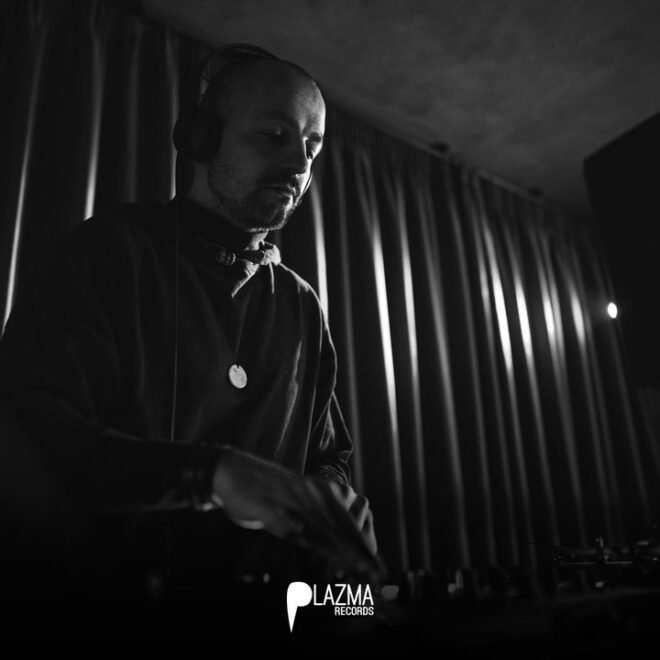We are delighted to have Svarog, a visionary music producer and DJ hailing from Ukraine, join us for this interview. Amidst the ongoing turmoil and adversity in his homeland, Svarog, with his profound introspection, remains resilient and steadfast in his pursuit of authentic self-realization.
Through his Instagram posts, Svarog shares insights and explores the depths of mysticism, offering a refreshing departure from the superficiality often found in today’s world. We were enthralled by his honest, insightful, and spiritually resonant posts, which led us to discover an artist whose values align closely with our own.
Similar to his presence on social media, Svarog fearlessly expresses his opinions in this interview, acknowledging that they may be controversial. We believe this is what we desperately need in our modern world and recognize the importance of embracing opposing thoughts and ideas in a commercialized music industry that can sometimes feel hollow.
To showcase his talent and vision, Svarog has graciously prepared a music set for the Plazma Records radio show, which was recorded live at an event called “Introversia,” a series of gatherings where Svarog takes on the role of one of the organizers. This set promises to take us on a riveting journey through his hypnotic and introspective sound, inviting listeners to delve into the realms of his artistic expression.
Join us as we converse with Svarog, delving deep into his thoughts, exploring his creative process, and gaining insights into his unique perspective as an artist navigating the challenging terrain of the techno scene.
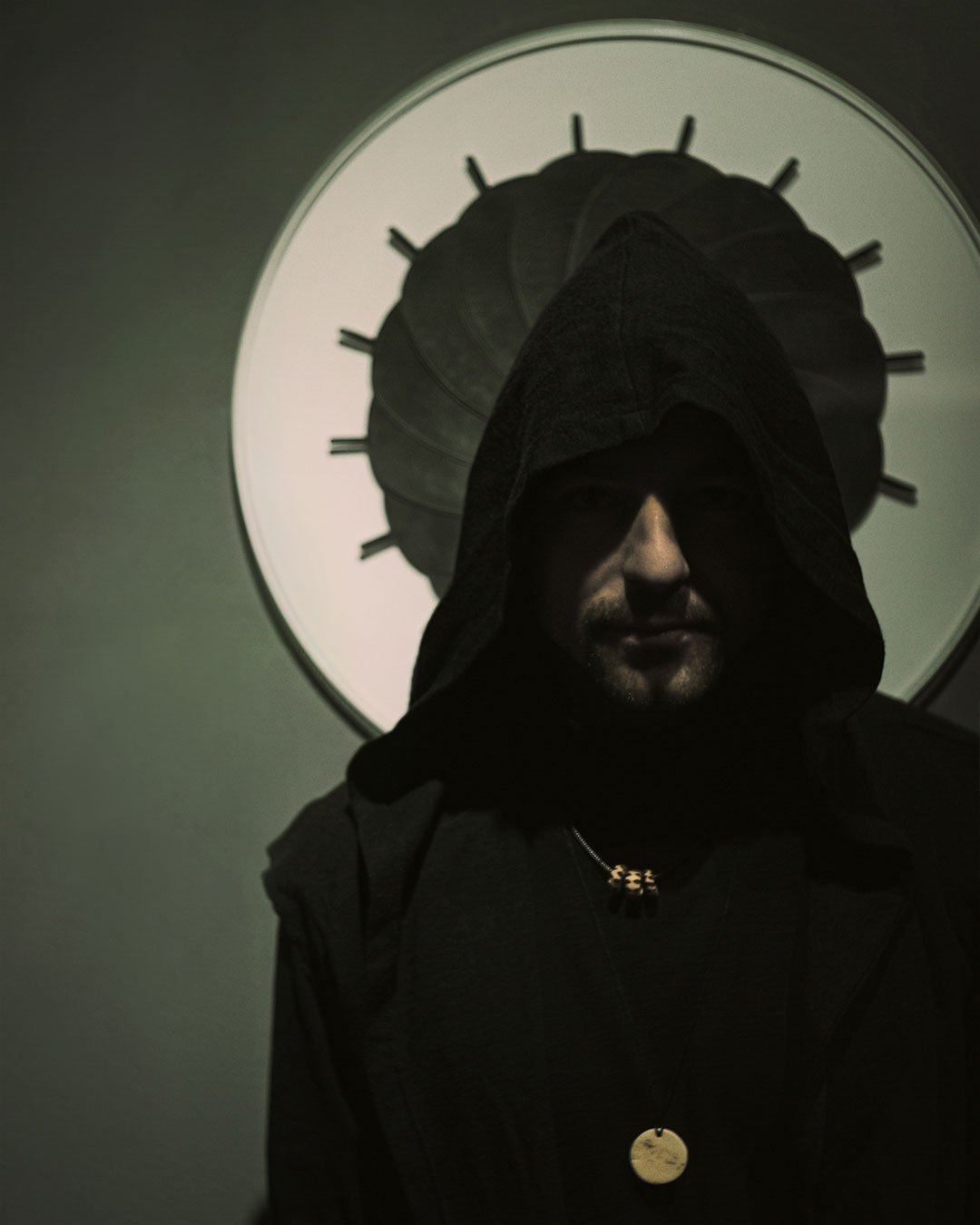
To begin with, what is your full name, age, and where are you from?
Oleksa Moroz, 34 y.o, Ukraine.
What does your alias, Svarog, mean and how did you come up with this name?
Svarog is a mythical character, somewhat resembling Hephaestus from Greek mythology. When I was choosing a name for the project, I had specific parameters that the name needed to meet. This particular name seemed fitting, so I eventually settled on it.
What did you aspire to be as a child?
In my childhood, I dreamed of becoming a football player. In the past, I spent a great deal of time on the football field.
Is music your sole occupation, or do you have another profession or career alongside it?
For a certain period of time, music has been my primary focus and occupation. I have always aspired for it to continue as such. However, due to the current situation, I am unable to leave Ukraine as there is a ban on travel for men. This restriction has deprived me of the opportunity to embark on touring journeys. While some artists have been granted permission to travel, the Ministry of Culture has denied me assistance in crossing the borders for temporary tours.
As a result, I find myself without work or financial means. It is uncertain how long I can sustain this situation under these circumstances.
Can you identify any particular movements or individuals who have had a significant impact on your journey to where you are now?
I’m not entirely certain that I had specific idols or figures in the music industry whose success I aimed to replicate. Throughout my career, I have always chosen my own unique path and direction to pursue.
That being said, there are individuals who have captivated my admiration, although their influence may not directly impact my career. Furthermore, the individuals who have inspired me may have varied throughout different periods of time.
Can you share your journey as a music producer? How did you get started, and what attracted you specifically to Techno (Raw/Deep/Hypnotic)?
At a certain point in my journey, I realized that producing my own music could serve as a catalyst for my DJ career. During the time when I first ventured into the realm of hypnotic techno, there may not have been a definitive term for this genre, although it was already gaining popularity.
Rather than aiming to create chart-topping formulas, I was always driven by the desire to delve into deeply intricate and intellectually profound music. This is what drew me to work within the Techno genre and explore its raw, deep, and hypnotic elements.
Do you find inspiration in your Ukrainian roots and incorporate any cultural or musical elements from your heritage into your performances and productions? If so, could you provide some examples of how these influences manifest in your music?
For me, inspiration is not always the key driving force behind my creativity. Instead, it becomes intertwined with specific ideas and concepts. When there is a clear understanding of what needs to be accomplished, the creative process can unfold under any circumstances. It is not solely reliant on inspiration for the emergence of good track ideas.
Undeniably, the imprint of my cultural heritage is present in the nature of my music, performances, and overall project concept. However, it may not be easily discerned in minute details or specific sounds. Instead, it is reflected in the overall essence of the project and the distinctive character of its sound.
Do you incorporate storytelling into your productions? Are there any specific narratives or themes you like to explore?
No, storytelling is not a defining aspect of my approach, especially when it comes to hypnotic techno. The nature of this genre is to avoid having a structured emotional narrative. In my case, a track may possess a distinctive sonic character, but it is not created with the intention of evoking specific emotions. The essence of this music lies in creating a balanced emotional state and allowing each individual listener to interpret and reflect upon it in their own unique way. The human mind naturally interprets and connects with what it hears.
While I acknowledge that my own personal experiences and perspectives influence my work, I am not an enlightened individual capable of creating a completely pure and detached product. While my music carries my karmic imprint, its essence resides in the broader concept of my artistic expression rather than being confined to the emotional moment of a specific track.
As a techno artist, how do you navigate the delicate balance between artistic expression and meeting industry demands, such as staying relevant and satisfying audience expectations? How do you maintain your artistic integrity while adapting to the ever-changing techno landscape?
That’s a great question. While I aspire to be a prominent figure in the music industry, participating in numerous tours, renowned festivals, and garnering attention through media coverage, I see myself as a somewhat peripheral entity within the industry.
My primary focus is on realizing my musical ideas as I envision them, even if I sometimes lack the technical skills to execute them precisely. It’s possible that the industry doesn’t pay much attention to me because I have limited points of connection with the tastes of the wider audience that shapes the industry. In such a situation, finding a compromise without compromising my artistic expression becomes a challenging task.
Your music is often described as hypnotic and filled with the spirit of mysticism and harmony. How do you create and maintain this enchanting atmosphere in your tracks and DJ sets? What elements or techniques do you incorporate to evoke a sense of magic and deep introspection?
For more specific and detailed insights, I recently conducted a masterclass where I delve into these topics. You can watch it by following this link: Svarog’s Masterclass.
In summary, I strive to create this enchanting atmosphere by carefully selecting and utilizing appropriate textures, voices, and occasionally incorporating ethnic drums. The pulsating repetition of sounds and fragments within the track plays a crucial role in achieving the desired hypnotic effects. I also emphasize the importance of avoiding overcrowding the arrangement with excessive and overwhelming sounds, allowing ample space for spatial effects to breathe. The sounds in my tracks are mostly concise and subtle, adding to the overall sense of intrigue and mysticism.
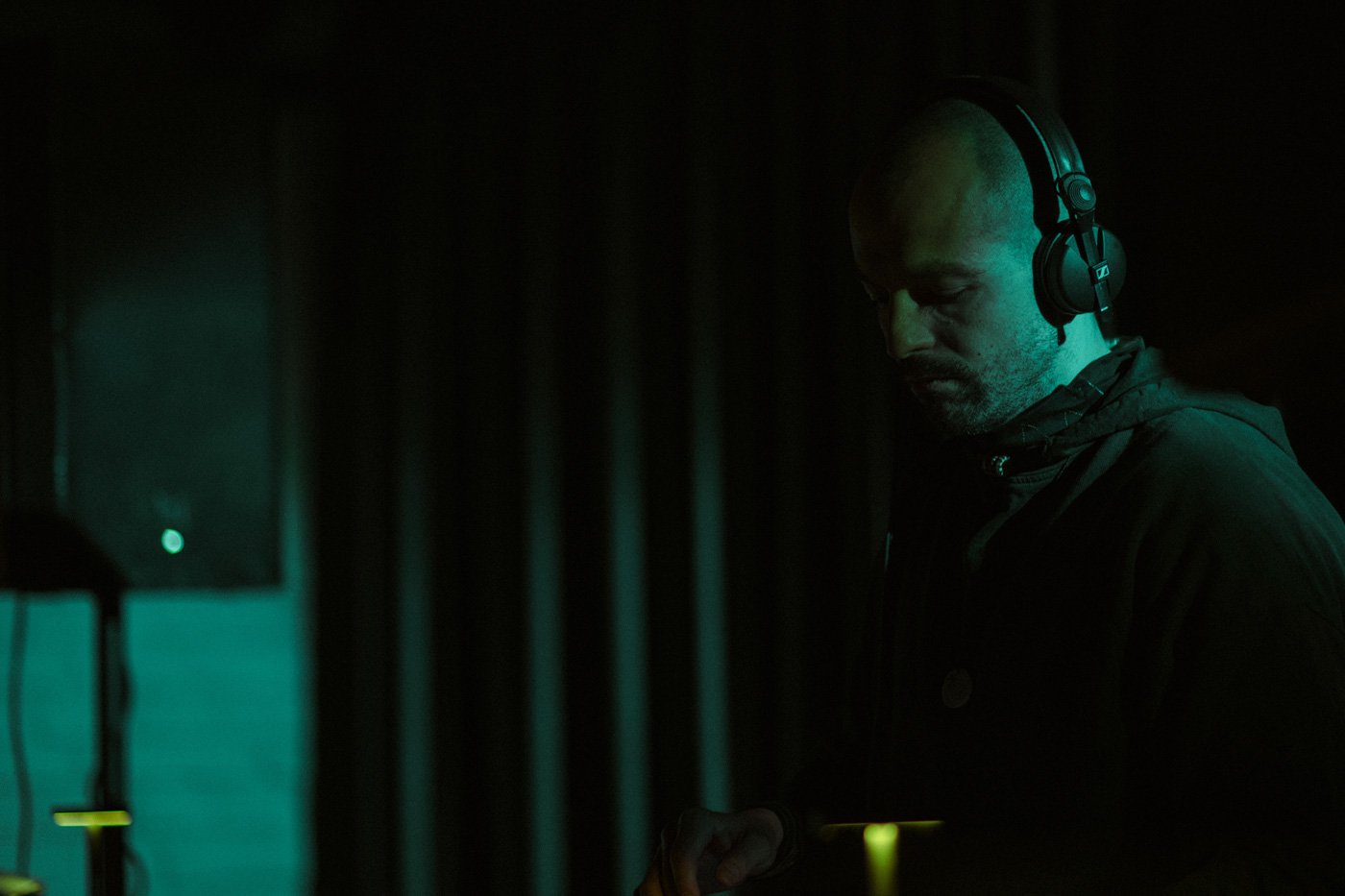
Can you share the story of your DJ debut? Where did it take place, and how did it unfold?
My journey as a DJ began in commercial clubs where they hosted disco nights. However, I quickly realized that the music format in those venues wasn’t aligned with my artistic vision, so I didn’t stay there for long.
Afterward, I made attempts to organize my own parties, but they didn’t gain much success initially. However, when I created the Svarog project, things took a turn for the better. I started receiving invitations to perform, and my career began to flourish. Initially, I focused on establishing myself within the local scene, playing extensively and gaining recognition. Over time, I was fortunate enough to embark on international tours, further expanding my reach and exposure.
What is your standard or preferred technical setup for your performances?
I am content with using the universally accepted standard of music equipment in the industry.
How do you typically prepare before a gig? And how much room do you leave for improvisation in your sets?
The preparation process varies for me. When I have a busy schedule with frequent performances, I can remember all the tracks well, and preparation becomes more streamlined. However, when I have fewer gigs, I need to dedicate more time to thoroughly learn the tracks I’m supposed to play.
The degree of preparation can vary, ranging from fully prepared sets to sets that allow for improvisation. Before my last performance, for example, I spent an entire week at home immersed in music, familiarizing myself with new tracks and ensuring I felt comfortable on stage.
In your opinion, what are some key elements that contribute to making a DJ set memorable and leaving a lasting impact on the audience?
It’s challenging to provide a definitive answer to that question, as the perception of a DJ set can vary among individuals. The same set can evoke different reactions and emotions in different people. If there were a specific recipe for creating a memorable set, I would certainly embrace it. However, the human brain integrates memories of a performance in various contexts, depending on individual circumstances and experiences.
In light of this, it is important for all participants, including the DJ and event organizers, to collectively strive to create memorable and enjoyable experiences for the audience.
How do you prepare and adapt your performances to suit different venues worldwide, considering their unique atmospheres and audiences?
Preparing and adapting performances for diverse venues worldwide can be a complex task. To truly grasp the authentic atmosphere of a place, it often requires spending a significant amount of time there. Sometimes, a single performance is not enough to fully understand the nuances of a particular audience or location. This can be especially challenging when performing in a new city or country for the first time.
However, techno, being a fairly universal music genre, tends to have a shared understanding among its listeners. Those who attend my performances typically have an idea of what to expect in terms of the music. Therefore, special adaptations are often not necessary.
In essence, adapting performances to suit different venues and audiences involves a combination of intuition, experience, and a willingness to embrace the unexpected.
Techno is a genre that can have a profound emotional impact on listeners, eliciting deep catharsis and stirring profound feelings. How do you approach creating an emotional journey through your sets or productions, and what specific emotions or experiences do you aim to evoke in your audience?
As an artist, my objective is to cultivate people’s musical taste, evoke a sense of aesthetics, and provide them with the opportunity to explore the depths of their emotions. When constructing my sets, I aim to create a journey that calms and stabilizes emotional surges, ultimately leading listeners to a state of serene bliss.
Visual aesthetics play a significant role in the electronic music scene, enhancing the overall experience for the audience. How do you incorporate visual elements, such as stage design or lighting, into your live performances?
As an artist, I have not yet reached a level of magnitude where I am able to tour with a dedicated visual artist who can provide tailored visuals for my performances. Instead, I rely on the collaboration with local artists and the understanding of the event promoters to create visual experiences that complement my music.
Each venue presents its own unique challenges and opportunities, as they possess different technical equipment and capabilities. Therefore, adapting to these circumstances becomes an essential part of the visual presentation.
In the parties I have organized, I have always strived for a sense of conciseness and minimalism in the lighting design. This allows the focus to remain on the music and the immersive atmosphere. Additionally, the use of smoke on the dance floor can add an extra layer of ambiance and enhance the visual experience. On occasion, video projections or mapping techniques have been incorporated to create captivating visuals that align with the overall aesthetic.
What is the most significant sacrifice you’ve had to make or continue to make in pursuing your passion for music?
I have rarely pondered on the notion of sacrifice in relation to my musical journey. While dedicating a substantial amount of time to music without attaining financial stability can present challenges in terms of material comfort, I wouldn’t consider it a sacrifice. Material comfort, while desirable, is not a fundamental requirement for me.
It is true that my path as a musician may position me on the margins of society, but I actively seek to strike a balance and establish meaningful connections with others. I believe that finding points of connection with society and the people around me contributes to my overall well-being and artistic fulfillment.
Is there a track that remains timeless for you, no matter how many times you’ve listened to it?
Mike Parker – Cios Underwater (Original Mix)
The digital era has brought about significant changes in the way music is consumed and distributed. How do you navigate the challenges and opportunities presented by streaming platforms, social media, and online communities to connect with your audience and maintain a meaningful presence?
Maintaining a constant presence on social media is certainly important in today’s music landscape. However, it’s important to recognize that social media platforms, such as Instagram, can be unpredictable in terms of maintaining a direct connection with your audience. Algorithms and shifting trends can impact the visibility of your posts, potentially hindering the organic reach to your followers.
While modern tools provide opportunities to bypass certain limitations and filters on information dissemination, I increasingly value the importance of direct access to the audience rather than solely relying on online communication. While I can share my music online, reaching people from all over the world, the challenge lies in bringing all these scattered individuals together for a live performance.
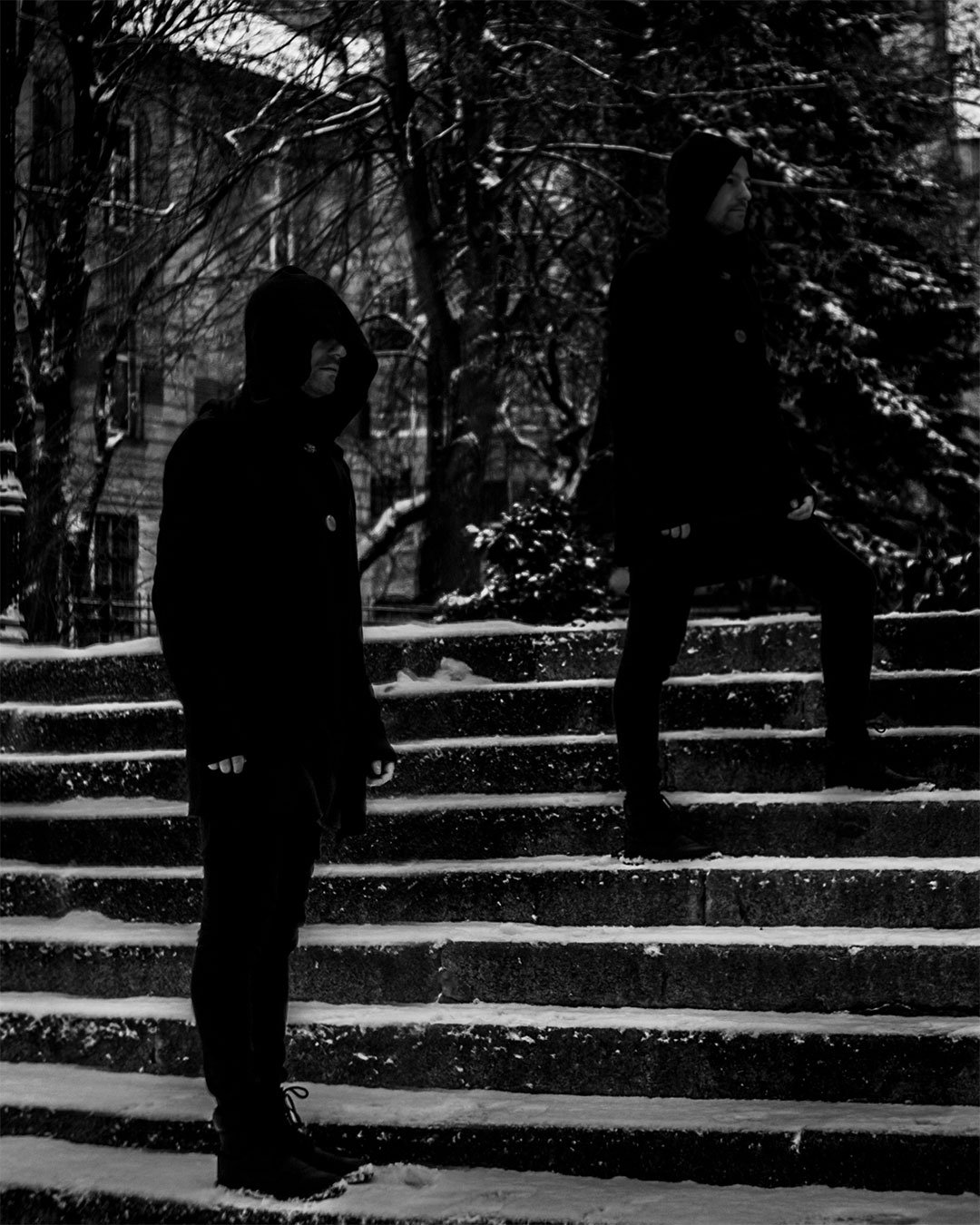
Techno music has the ability to create transformative and immersive experiences for both the artist and the audience. From a philosophical standpoint, how do you perceive the role of music in expanding consciousness or facilitating personal growth and introspection?
In my view, the relationship between music and personal development operates in a different manner. I believe that one’s level of musical taste is influenced by critical thinking, spiritual growth, and moral qualities. While music itself can act as a catalyst for self-analysis and spiritual development, it is our approach to it that determines the extent of its impact.
When we approach music not merely as an emotional trigger, but rather as an object of concentration and focus, it has the potential to yield profound results. Hypnotic techno, in particular, is well-suited for this purpose. Its repetitive and hypnotic nature can serve as a tool for introspection and deep concentration.
How do you perceive the role of techno music in fostering connection and community, both within and beyond the dancefloor, as it transcends boundaries and nurtures a collective sense of unity?
It’s important to approach this question with a critical perspective rather than making assumptions. While it is often suggested that techno music promotes connection and community, a comprehensive understanding of its social impact would require in-depth sociological research. Such studies might already exist, although I personally haven’t explored them extensively.
Different social groups may come together on the dancefloor due to the resonance of certain values, but it’s essential to recognize that shared values can also exist among diverse groups.
The techno industry has witnessed significant growth and transformation over the years. From my perspective, there have been both positive and negative aspects that I’ve observed throughout my journey as an artist.
On the positive side, the expansion and evolution of the techno scene have brought about increased comfort and stability for musicians, as well as provided a wider range of opportunities for clubs, festivals, and booking agencies. The industry now offers a greater variety of artists with diverse styles and backgrounds, allowing for more creativity and exploration within the genre. This growth has also contributed to the recognition of techno as a significant cultural movement and has expanded its reach to a broader audience.
Moreover, it appears that the techno scene has partly taken on the characteristics of show business, which has its advantages. It opens doors to larger platforms, bigger stages, and greater visibility for artists. This development allows techno musicians to showcase their talent and connect with a larger audience, which can be both rewarding and inspiring.
However, there are negative aspects that have emerged alongside the industry’s growth. The increased popularity and commercialization of techno have attracted opportunists, hypocrites, and charlatans who prioritize image and sensation over substance and artistry. These individuals may create attractive but hollow personas, relying on scandals and provocations to gain attention. They often exploit the work of others without contributing meaningful content or artistic value.
These negative aspects can be disheartening, as they can detract from the authenticity and integrity of the techno scene.
The Svarog project has been active since 2014, and you’ve witnessed the evolution of the techno scene during this time. How do you see your sound evolving and progressing in the future? Additionally, what are your aspirations and objectives as a music producer and DJ, looking ahead?
As an artist, I believe that there is always room for growth and progression in my sound. I aim to further develop my skills, allowing me to convey my ideas more accurately and bring complex projects to life. This continuous evolution will be reflected in the future direction of my music.
However, it’s important to acknowledge the challenges I currently face within the music industry. The Svarog project has reached a stagnation point, with limited growth in popularity. Despite my efforts over the past three years to seek external help and break through this barrier, I have not achieved the desired results. This has left me uncertain about how to proceed and has hindered my ability to plan specific aspirations.
Ideally, I would love to perform at major festivals and release music on esteemed labels. These are common aspirations for many artists, including myself. However, given the current circumstances, such as travel restrictions preventing me from leaving Ukraine, these opportunities have become even more elusive. It is disheartening to face such obstacles, and they may potentially impact the continuity of the Svarog project.
Are there any upcoming projects or collaborations that you’re excited about and would like to share with your fans and the audience?
I am currently engaged in organizing a series of exciting parties called “Introversia.” These events hold a special place in my heart, and I would be thrilled to see all my fans and listeners attend and enjoy the music. Unfortunately, due to the current restrictions on men leaving Ukraine, I am unable to travel and perform at other venues or festivals. Therefore, the “Introversia” parties provide an opportunity for us to connect and share the experience together.
In addition to the parties, I invite you to subscribe to my YouTube channel. There, you will find a collection of podcasts that I have recorded for various channels and communities. These podcasts offer a glimpse into my musical journey and provide a platform for me to share my music with a wider audience.
